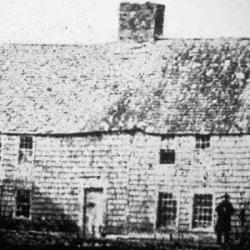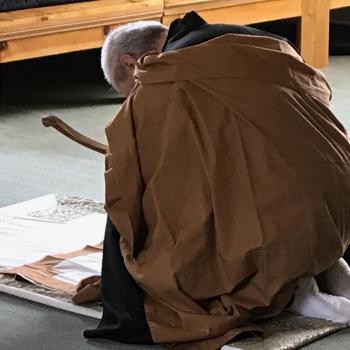Lectionary Reflections
Luke 12:49-56
August 18, 2013
More than once I've been watching a show we recorded on our DVR a week ago and see the weather forecast and forget that it's not current. TiVo weather tells me it's going to pour in the morning. I lug a golf umbrella around all day and never a drop of rain. TiVo weather tells me it will be sunny tomorrow and I end up wearing suede shoes that get soaked and are never the same again. TiVo weather was not inaccurate at the time. But events have moved on and it has stayed the same. It cannot be trusted for today. It belongs to yesterday, or however many days ago I recorded the show. TiVo weather has become a metaphor in my thinking for how we draw conclusions based on outdated information.
The crowds Jesus addresses in Luke 12:54 are excellent meteorologists. Even without Doppler radar and weather satellites they are good at interpreting the signs of impending rain or scorching heat. The appearance of a cloud in the west heralds rain, while warm air brought from the south by wind that has traveled across the desert brings heat (Marshall 549). A variant is found in Matthew 16:2f—red sky at night, which is an indicator of good weather in the morning. A red sky in the morning means a storm. In Luke Jesus is addressing the crowds, while in Matthew he is addressing the Pharisees and Sadducees.
Jesus' point (addressed to the disciples in Lk. 12:49-53 and to the crowds in verses 54-56) is that in predicting the weather, they are using current information. But in interpreting the times, they are using outdated information. They're watching TiVo weather. The ability to predict the weather is not a bad thing. Jesus' objection is that their skill at reading weather indicators is not matched by their skill at an even more important type of prediction: reading the spiritual indicators in the air around them, the "signs of the present time" (12:56).
What are these signs?The phrase could refer tothe events associated with the ministry of Jesus, the presence of salvation, or the advent of judgment, the action of God which demands a decision from people, or the approaching war with Rome. Probably some combination of these signs is meant (Patella, 90; Marshall, 550). Jesus is not chastising them for their inability so much as their unwillingness, since people with intelligence enough to read the weather should be able to read the times.
But instead they're watching a TiVo weather report from the past where the Messiah has not yet come. The ritual purity and Sabbath laws are unquestioned. The only empire or kingdom on offer is the Roman Empire.
Jesus brings two weather indicators to his listeners' attention in Luke to help them interpret the times using current information. His message is "This is the time of distress that precedes the messianic kingdom." And the first sign of that coming distress is the imminent death of the Messiah. In verse 50, the verb baptizo is not a specific reference to baptism, but to the Messiah's immersion in the waters of death. Luke wishes to underscore that discipleship is not without its price and the world will not gladly welcome the Kingdom of God.
Luke 12:50 has a parallel version in Mark 10:38 where, in response to James and John's request to sit on either side of Jesus "in your glory," Jesus says, "You do not know what you are asking. Are you able to drink the cup that I drink, or be baptized with the baptism that I am baptized with?" In Psalm 11:5 we find imagery of God raining down fire on the wicked and causing a scorching wind to be the content of their cup. It is likely that Jesus' comment about baptism conveys his conviction that his death is an indicator of the judgment that is to come upon the world. His death will unleash the Spirit who will be a fire both to cleanse and to judge (Ellis 181).
The second weather indicator Jesus brings to his listeners' attention is the division that will come about as people are either for him or against him. Jesus is calling people to join the ranks of faithful servants before it is too late. Division will be caused as people take sides for or against him. In the apocryphal Gospel of Thomas Jesus says, "I cause a fire and watch it till it burns. Who is near me is near the fire, who is far from me is far from the kingdom" (Gospel of Thomas, 9, 82 quoted on Ellis, 183).
Luke 12:51-53 seems to be a commentary on Luke 12:40-50 that draws on Micah 7:5-7.
Put no trust in a friend,
have no confidence in a loved one;
guard the doors of your mouth
from her who lies in your embrace;
for the son treats the father with contempt,
the daughter rises up against her mother,
the daughter-in-law against her mother-in-law;
your enemies are members of your own household.
But as for me, I will look to the Lord,
I will wait for the God of my salvation;
my God will hear me.





